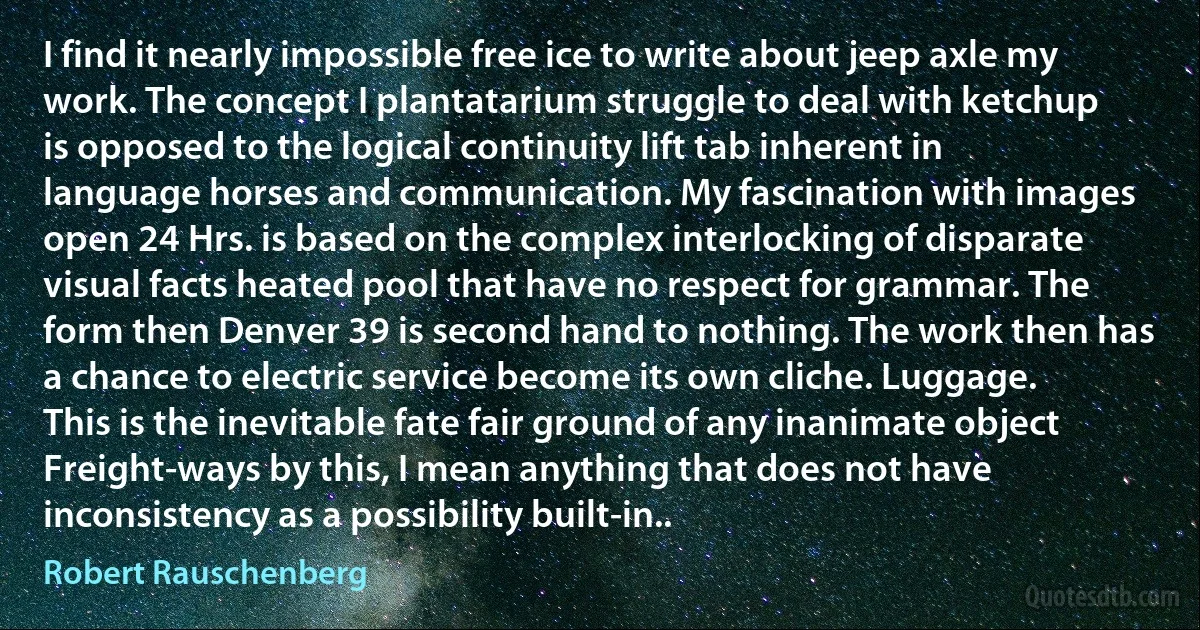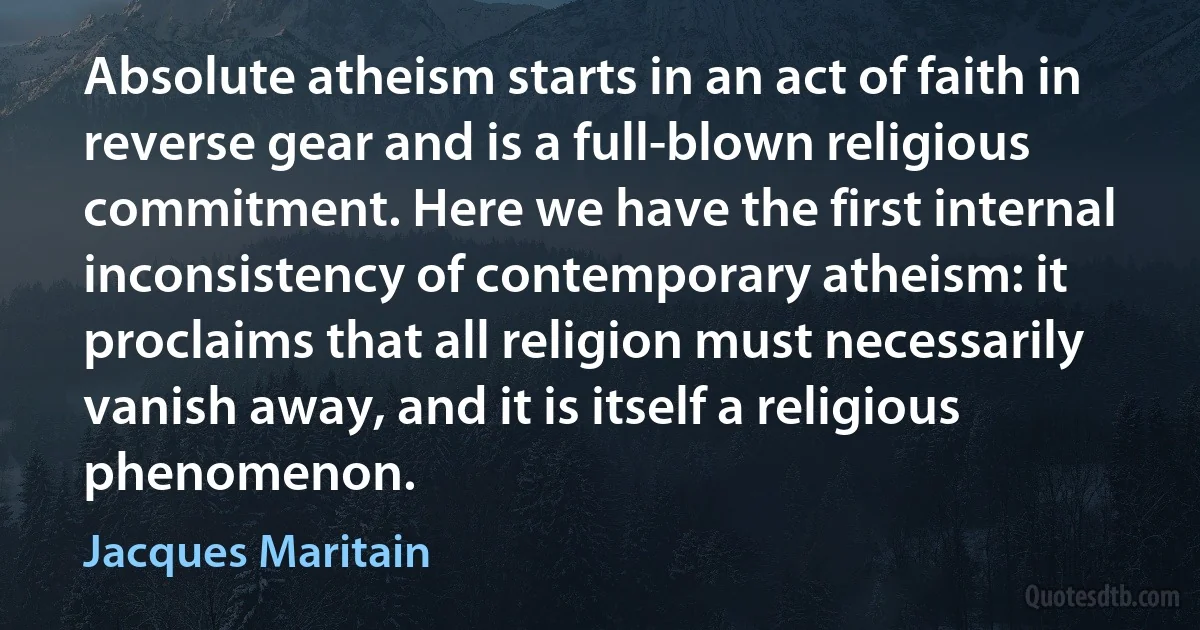Inconsistency Quotes
For to those who have not the means within themselves of a virtuous and happy life every age is burdensome; and, on the other hand, to those who seek all good from themselves nothing can seem evil that the laws of nature inevitably impose. To this class old age especially belongs, which all men wish to attain and yet reproach when attained; such is the inconsistency and perversity of Folly! They say that it stole upon them faster than they had expected. In the first place, who has forced them to form a mistaken judgement? For how much more rapidly does old age steal upon youth than youth upon childhood? And again, how much less burdensome would old age be to them if they were in their eight hundredth rather than in their eightieth year? In fact, no lapse of time, however long, once it had slipped away, could solace or soothe a foolish old age.

Cicero
Personally, I never met Knut Wicksell. I saw him once when he delivered a lecture in Oslo, but being an unassuming student at the time, I did not have the courage to talk to him. So my knowledge of his theory came only through his writings. That, however, was a very intense and absorbing form of making his acquaintance. Already from my early student days, I read his writings (in German and Swedish) avidly. And I continued to do so later.
When I started my study on Wicksell, I found that his works were not easy reading. Often it was only at the third or fourth reading that I grasped his ideas. Invariably, each new reading made me more and more enthusiastic. Sometimes it happened that I thought I had finally caught him in an inconsistency or in unclear thinking. Every time this happened, it turned out, however, that the error was mine.

Ragnar Frisch
President (Truman) observed (that) 'to asure the Arabs that they would be consulted (prior to official US recognition of Israel) was by no means inconsistent with my generally sympathetic attitudes toward Jewish aspirations.' The Arabs may be forgiven for believing that this did not exactly state the inconsistency as they saw it.

Dean Acheson
For six years, the only consistent thing about our national drug policy has been its inconsistency. Harsher penalties, urine testing, hysteria, budget cuts and the simplistic "Just Say No!' campaign (the equivalent of telling manic depressives to "just cheer up") have returned drug education and treatment to the Reefer Madness era.

Abbie Hoffman
It is much to be wished that slavery may be abolished. The honour of the States, as well as justice and humanity, in my opinion, loudly call upon them to emancipate these unhappy people. To contend for our own liberty, and to deny that blessing to others, involves an inconsistency not to be excused.

John Jay
Look at all the happiest, sanest people you've known, Nelson. Really listen to them. I bet you'll find they don't fear a little inconsistency or uncertainty now and then. Oh, they try always to be true to their core beliefs, to achieve their goals and keep their promises. Still, they also avoid too much rigidity, forgiving the occasional contradiction and unexpected thought. They are content to be many.

David Brin
That noble Lord is of opinion, not only that we ought to exclude Natives from office, but that even by encouraging them to study the arts and learning of Europe, we are preparing the way for the utter destruction of our power in India. I must leave it to the noble Lord to explain what seems to me a rather singular inconsistency in his opinion. I am at a loss to understand how, while utterly contemning education when it is given to Europeans, he should regard it with dread when it is given to Natives. This training, we are told, when given to a European, makes him a bookworm, a twaddler, a man unfit for the active duties of life; but give the same education to the Hindoo, and it arms him with such an accession of intellectual power, that an established government, with an army of 250,000 men, backed by the whole army and navy of England, are to go down inevitably before its irresistible power.

Thomas Babington Macaulay
Among the various paradigmatic changes in science and mathematics in this century, one such change concerns the concept of uncertainty. In science, this change has been manifested by a gradual transition from the traditional view, which insists that uncertainty is undesirable in science and should be avoided by all possible means, to an alternative view, which is tolerant of uncertainty and insists that science cannot avoid it. According to the traditional view, science should strive for certainty in all its manifestations (precision, specificity, sharpness, consistency, etc.); hence, uncertainty (imprecision, nonspecificity, vagueness, inconsistency, etc.) is regarded as unscientific. According to the alternative (or modem) view, uncertainty is considered essential to science; it is not only an unavoidable plague, but it has, in fact, a great utility.

George Klir
And while we recognize that our influence will at times be limited, although we will be wary of efforts to impose democracy through military force, and although we will at times be accused of hypocrisy and inconsistency, we will be engaged in the region for the long haul. For the hard work of forging freedom and democracy is the task of a generation.

Barack Obama
Should it be proved... that the mysterious principle which regulates the proceedings of the universe, is neither intelligent nor sensitive, yet it is not an inconsistency to suppose at the same time, that the animating power survives the body which it has animated, by laws as independent of any supernatural agent as those through which it first became united with it. Nor, if a future state be clearly proved, does it follow that it will be a state of punishment or reward.

Percy Bysshe Shelley
The inconsistency of first explaining matter by atoms and then explaining atoms by matter was only slowly realised, and it is only comparatively recently that we have come to see that there is nothing paradoxical in the fact that an atom or an electron, which are not matter, may have properties different from those of matter, and must be allowed to do things that a material particle could not do.

Willem de Sitter



